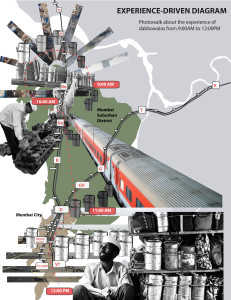Daily Archives: April 15, 2013
Infrastructure Group Presentation Draft
Our group has been focused on the layout and consistency of presenting the infrastructure projects. We value consistency in order to be able to compare and contrast the different interventions. Here’s a draft of where we are at now, and the direction we would like to take.
http://prezi.com/xbs0onprubnx/untitled-prezi/?kw=view-xbs0onprubnx&rc=ref-3326077
-Can, Sriram, Leandro
The difference between a handout and agency
The idea of mirco-fiance has been showen to be very successful and directly beneficial to those involved in the process. It has helped those who are trapped in a situation where they cannot help exit the cycle of debt and and lack of ability of to help themselves. The reason for this succes though is that this system works not on handouts or charity but on a system of self help.
Instead of simply giving those in need money the micro-fiance system gives those in need a small loan. This means that what ever money is given to the people is returned by the people. This has many benefits to it. This system does not need to rely on continued outside help. Initially this is the case but as loans get paid back the outside help is no longer needed. This allows the people in the people who initially needed assistance to become independent. This independence will have significantly greater benefits then blind charity.
In a more subliminal way the micro-fiancee system also refines the relationship between the helped and the one who is helping. Classically those who received charity are seen as victimized and helpless while those who help are often seen with an altruistic pride. This relationship limits the potential for those in need to have agency. It creates a relationship of dependence. Micro-fiance subverts this by maintaing that those loans are paid back. There is not more charity or one who gives and another who takes. It is now a far more sophisticated relationship.
The idea of self help has been something coming up multiple times. It is clear that blind charity is temporary and limited at best. Once the funds or assest that have been given dry up nothing is often left. Thus giving those in need the ability to help themselves create a system where outside intervention is only needed to begin the process before the individuals are able to to take act on their own and help themselves and their community.
Categories – “Radar” map of projects
Micro-Finance or Micro-Reaction?
While micro-finance has proved successful in lifting families out of poverty it is politically problematic for two major reasons: it perpetuates capitalist social relations, thereby masking the root cause of poverty and the system is susceptible to manipulation by larger financial entities which charge interest and run counter to the socially conscious vision of Muhammed Yunus.
Yunus’ vision, while admirable, ultimately falls short because in the end it relies on a belief in “capitalism with a human face.” His vision asserts that the periodic crises in global capitalism are the result of greed and mismanagement as opposed to a systemic problem. The system of micro-finance that he pioneered gives people the impression that global poverty can be significantly reduced by small actions and that even the most basic economic exchanges should be formalized in the capitalist market. Furthermore, the valid sense of hope generated through his model’s successes potentially negate any hope for concerted political action that would demand jobs and services (such as healthcare) that should be treated as rights in the first place. The ideological implications of belief in such a system may outweigh the on-the-ground benefits in the long run.
Poverty is not accidental and such assertions that globalization can be transformed to include the Global South as a beneficiary are naïve at best. The systemic issues of global capitalism and its symptoms of hunger and poverty cannot be adequately addressed through micro-finance. The international working class is thoroughly productive and yet poverty and chronic unemployment are a result of mismanaged distribution at the hands of the owning class.
While it is obviously good to lift families out of poverty, and micro-finance has proven successful in many instances, the political implications of such a reliance may in fact maintain extreme levels of income inequality and power across the world. If the solution were as easy as giving every poor family a small sum of money, global poverty would have been history years ago. The system of micro-finance enshrines bourgeois social relations and provides a false sense of hope for the class that in reality produces the world’s wealth through its labor.
1. Dr Toh Han Chong, Interview with Professor Muhammad Yunus, SMA News, Volume 40 No. 12 December 2008.
